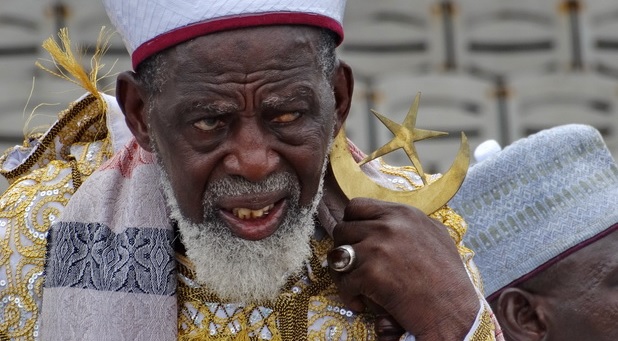
Muslims observe Eid-ul-Adha today
Muslims in Ghana are joining Muslims across the globe to celebrate Eid-ul-Adha (Festival of Sacrifice) today.
Advertisement
Muslims — old and young, men and women — dressed in their nice apparels, will first converge on open spaces and in big mosques to observe prayers in the early hours of the morning.
They will shower praises on Allah for preserving them for an additional year and giving them the opportunity to observe a sacrifice to earn His blessings.
Thereafter, Muslims who have the financial wherewithal will retire to their various homes to sacrifice animals — sheep, goats and cows.
Eid-ul-Adha is a festival of sacrifice in honour of Prophet Abraham, who obeyed Allah's command to sacrifice his son, Ismail.
For that display of commitment to sacrifice his son in obedience to Allah's command, Allah exchanged that sacrifice with a sheep.
It is a religious obligation in Islam that Prophet Muhammed amplified more than 1,400 years ago.
Eid-ul-Adha is an occasion that tests the faith and obedience of Muslims to Allah’s command. Those who can afford it are required to buy and sacrifice animals.
The celebration is also a moment to promote goodwill among Muslims and between Muslims and adherents of other religious faiths.
Eid-ul-Adha also seeks to bring about peaceful coexistence and harmony between the rich and the poor in society.
This is evident in the guide for the sharing of the meat of the animals sacrificed — those who perform the sacrifice are required to reserve one-third for themselves, share one-third among poor Muslim neighbours and the other third among followers of other religious faiths.
According to Islamic scholars, Eid-ul-Adha went beyond the sacrifice of animals, as the feast also challenged Muslims to use their intelligence, wealth, energy and time to better the lot of other people in society.
The Hajj factor
Eid-ul-Adha also marks the end of the Hajj (pilgrimage to Mecca).
Pilgrims are required to sacrifice animals at the end of the pilgrimage. Those who do not have the means to sacrifice animals are required to observe the fast, part in Mecca and the rest in their home countries, to stand in for the sacrifice.
Early this year, nine Muslims died in a stampede during the Eid-ul-Fitr celebration in Kumasi.
Iran boycotted this year's Hajj, in part because of security concerns.
During last year’s pilgrimage, several hundred Iranians were among at least 2,000 people who were crushed to death in a stampede in the city of Mina in Saudi Arabia.
To prevent the reoccurence of the stampede, the Saudi authorities introduced new security measures to ensure the safety of the pilgrims.
National Chief Imam's message Meanwhile, the National Chief Imam, Sheikh Osmanu Nuhu Sharubutu, has urged Ghanaians not to engage in any acts to destabilise the country before, during and after the December 7 elections.
He said citizens of other African countries were rushing to Ghana because of the instability in those countries.
Sheikh Sharubutu said it was crucial for Ghanaians to avoid any situation that would compel them to flee their country.
The Administrator of the Office of the National Chief Imam, Mallam Musah Abubakar, conveyed the National Chief Imam's message to the Daily Graphic in Accra yesterday.
Sheikh Sharubutu asked the Electoral Commission (EC) to be transparent to all political parties in the conduct of the elections and urged political leaders to conduct their campaigns devoid of insults.
He asked the security agencies to put in place measures to address any security challenges that might crop up during and after the elections.




